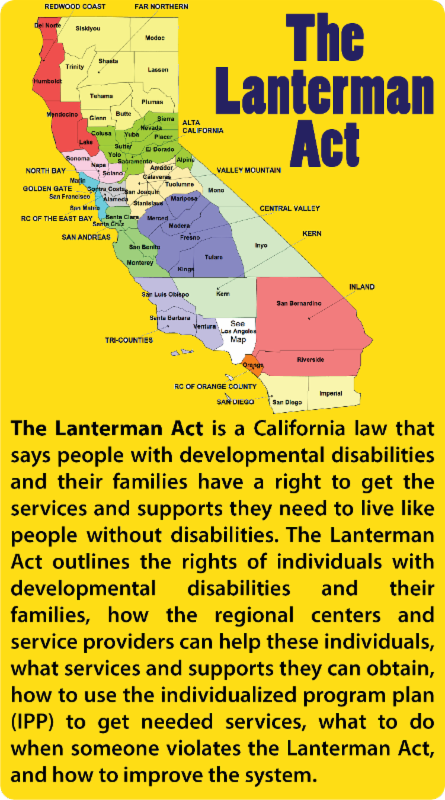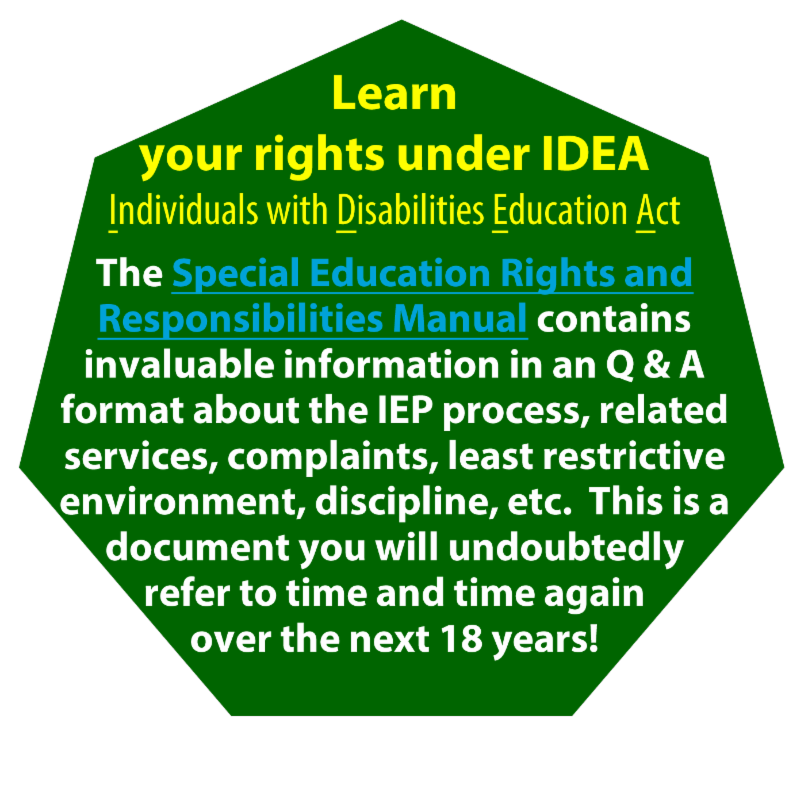Early intervention refers to services and supports provided to eligible infants and toddlers younger than three and designed to meet their developmental needs. Both Part C of the
Individuals with Disabilities Education Act (IDEA) and the
California Early Intervention Services Act outline how early intervention services are to be provided. In California these services are provided by either the school district or the regional center, depending upon eligibility. In this article, we will focus on regional center early intervention services, also known as Early Start.
The regional center system is broken up into two distinct types of eligibility:
Early Start eligibility and
regional center eligibility under the Lanterman Act. As stated above, Early Start is for children under the age of three. Lanterman is for those individuals over the age of three who meet the much more narrow eligibility criteria outlined in
Welfare and Institutions Code §4512 (part of the Lanterman Act). One of the key differences in the eligibility criteria is that for a child to be found eligible under Lanterman, their disability must be expected to continue lifelong.
But it's not quite as simple as that, so let's break it down.
When a child is referred for Early Start services, the regional center must complete the assessment activities, hold a meeting to determine eligibility, and develop an
Individualized Family Service Plan (IFSP) within 45 calendar days of the date it receives the written or oral request.

Once a child turns three, the regional center can reassess the child to see if he or she has a developmental disability that makes him or her eligible under Lanterman. Children who do not meet the eligibility requirements will no longer receive regional center services.
It's my understanding that at least 50% of children receiving Early Start services through the regional center do not qualify for regional center services under Lanterman once they turn three.
When a child turns three, s/he may qualify for services from the school district. The regional center takes the lead in coordinating this transition. It begins six months before the child turns three years old and includes the following:
- The service coordinator must notify the parent of a child who may be eligible for special education preschool services that transition planning will occur within the next 3 to 6 months;
- The service coordinator must notify the local school district that there will be an Individual Family Service Plan [IFSP] meeting at least three months before the child turns three. The district must participate in transition planning conferences arranged by the regional center.
The law requires that the parent, school district and regional center discuss possible preschool special education services, as well as the transition steps, including: (1) Discussions with, and training of, parents, as appropriate, regarding future placements and other matters related to the child's transition; (2) Procedures to prepare the child for changes in service delivery and adjustments to new settings; and (3) Transmission of information and records to the school district.
In addition, state law requires that: (1) Parents are provided information about community resources; (2) Information about the child is sent to the school district, including IFSPs (with the parent's consent), and any necessary assessments by the district and regional center to determine eligibility and the timelines for completing assessments; (3) A projected date for conducting a final review of the IFSP is determined; (4) Steps are taken to ensure that the referral to the district is received in enough time so that assessments are completed, and an IEP implemented, by the child's third birthday; (5) Referral to the district occurs no later than the time a child reaches age 2 years, 9 months, or before the district's break in services if the child will turn three during that break; and, (6) The people responsible for convening an IEP and final IFSP meeting are identified.

To elaborate on (2) above, your school district, under IDEA, is required to fully evaluate any child who may need special education services "in all areas related to the suspected disability, including, if appropriate, health, vision, hearing, social and emotional status, general intelligence, academic performance, communicative status, and motor abilities." As a parent, you must make sure that all areas of possible need are assessed as quickly as possible. If you have concerns about the evaluation results or the team's recommendations, you can request independent evaluations at the district's expense.
If the child turns three and the district's special education preschool program is not yet in session, the regional center may continue providing Early Start services during the interim, providing the team determines they are necessary.
Ultimately, transitions of any kind are often confusing, frustrating and daunting. Therefore, it is critical that you, as the parent, understand the laws that govern transition from early intervention to preschool in order to ensure your child receives the appropriate services in a timely manner. Help yourself and your child by familiarizing yourself with the law, the services and the system. There will be many more transitions for you and your child in the future and each one will be an opportunity to increase your knowledge and build upon your advocacy skills.
Laws that govern transition from Early Start to Preschool: